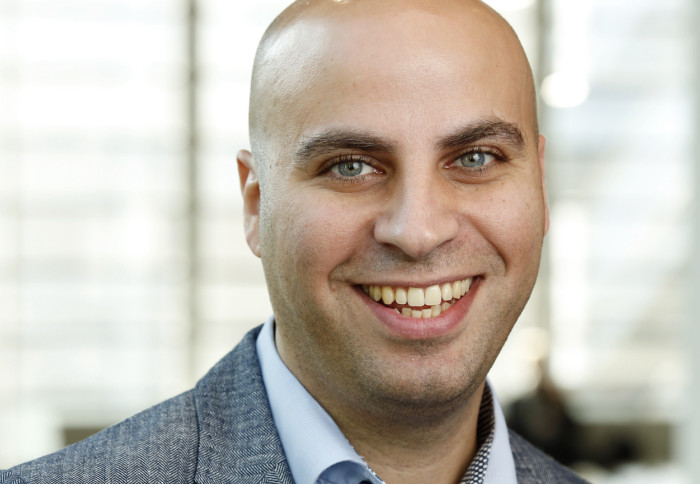EEE celebrates academic staff promotions: Professor Tim Constandinou
by Jane Horrell

The interface of electronics and the human brain has exciting prospects for future healthcare applications
The EEE community has seen six of our academic staff promoted in the College's 2021 round. Today we meet Professor Tim Constandinou.
Tim Constandinou, promoted to Professor of Bioelectronics
I first joined Imperial in 1998 as an undergraduate student seeking to turn my hobby in electronics into my profession. I was — and still am — passionate about being able to create something from nothing, to innovate, and use my skills to solve real world problems. I never had considered an academic career, nor did I really know what an academic did. My plan was to graduate and go into industry or start my own company. Imperial introduced me to many things – advanced technology, research, community, collaboration and multidisciplinarity. I was appointed a lecturer in the EEE department in 2010.
Human inspiration
As an electronic engineer, I have always been fascinated by the human brain and how our senses, emotions and thoughts are conveyed by electrical signals. This has defined my research area; I now lead the Next Generation Neural Interfaces Lab. We create bioelectronic systems for neural interfaces to study, manage, or treat neurological conditions. Such systems however often pose some of the most demanding challenges. For example, implantable devices need to occupy minimal volume, consume virtually no power, be adaptable, autonomous and operate reliably and safely for a lifetime.
My current projects are in applications related to brain machine interfaces, epilepsy, and dementia. These are collaborative, multidisciplinary, multi-institutional projects, often translational and including industry partners. Examples include: CANDO – creating a new type of brain pacemaker for treating drug-resistant focal epilepsy, targeting a first-in-human trial; ENGINI – developing wireless chip-scale implants for brain machine interfaces; and UKDRI – developing integrative bioelectronic systems to support, monitor and treat people living with dementia in their own homes.
Looking to the future
Neural interfaces have gained significant traction and public interest in recent years. In 2019, I worked with the Royal Society to develop iHuman – a UK perspective on neural interfaces, reviewing the field, and exploring future prospects. We have already witnessed the impact cochlear implants have had to the profoundly deaf and deep brain stimulators to people with Parkinson’s disease. Over the next decade, I expect devices will become available that allow those who are completely paralysed or locked-in to communicate. Into the future, I have no doubt that neural interfaces will touch all our lives, with uses in both medical and consumer applications.
Our congratulations to Tim — and to all our staff on their recent promotions — from everyone in the EEE Community!
Article text (excluding photos or graphics) © Imperial College London.
Photos and graphics subject to third party copyright used with permission or © Imperial College London.
Reporter
Jane Horrell
Department of Electrical and Electronic Engineering